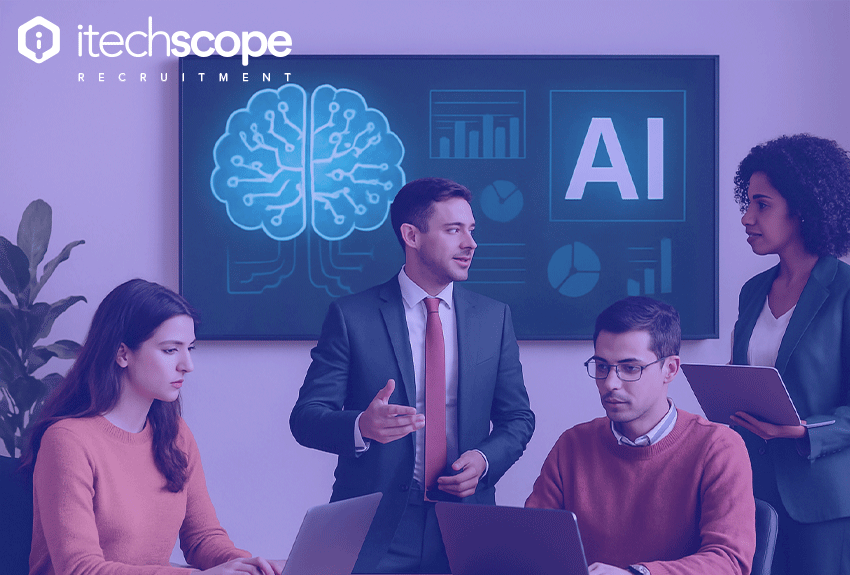AI in the Workplace: How Businesses Are Adapting to the Next Wave of Generative AI

The integration of generative artificial intelligence (AI) into the workplace is revolutionizing business operations across various industries. Companies are leveraging this technology to enhance productivity, streamline processes, and foster innovation. As organizations adapt to this new wave, they are implementing strategies to effectively integrate AI into their workflows.
Transforming Business Operations with Generative AI
Generative AI is making significant strides in automating tasks and providing intelligent insights. For instance, Bloomberg is developing AI tools capable of streamlining up to 80% of analysts' workloads by processing unstructured data, such as company filings and reports. This allows analysts to focus more on deriving insights rather than sifting through documents.
In the healthcare sector, HCA Healthcare is collaborating with Google Cloud to utilize generative AI for reducing physicians' administrative tasks. The AI extracts information from physician-patient conversations and generates initial drafts of medical notes, which physicians then review and finalize. This approach aims to enhance documentation efficiency and workflow.
Upskilling and Reskilling the Workforce
As AI becomes more prevalent, businesses recognize the need to upskill and reskill their employees. According to Gallagher's 2024 Generation AI survey, 49% of respondents have begun delivering AI training and on-the-job learning for employees, with another 36% planning to do so. This proactive approach ensures that the workforce can effectively leverage AI technologies.
Embracing a growth mindset and fostering a culture of innovation are essential for employees to adapt to AI-driven changes. Companies are encouraging experimentation and creativity, creating environments where employees feel empowered to take risks and explore new AI tools. Investing in AI ethics is also crucial to ensure responsible and fair use of the technology.
Addressing Challenges and Risks
While generative AI offers numerous benefits, it also presents challenges such as concerns about fairness, privacy breaches, and security vulnerabilities. Organizations must address these issues to build trust and ensure ethical deployment. Inaccuracy remains a critical risk, as biases in training data or algorithmic errors can lead to misinformation or flawed decisions. Effective data governance and human oversight are essential to mitigate these risks.
Industry-Specific Applications
In the financial sector, JPMorgan Chase is developing a conversational analytics assistant that enables corporate treasurers to interact with their payments data in plain language. This AI tool aims to streamline processes such as information retrieval, reporting, and analytics, completing tasks in seconds rather than days. Encyclopedia Britannica
The pharmaceutical industry is also benefiting from generative AI. Companies like Bayer are testing chat-based AI systems to provide expert agronomic information, aiming to improve how farmers and agronomists access data. This approach leverages proprietary agronomic data to train large language models, enhancing information dissemination.
Conclusion
The adoption of generative AI is reshaping the workplace, offering opportunities for enhanced efficiency and innovation. Businesses are actively adapting by integrating AI into their operations, investing in employee training, and addressing associated challenges. As this technology continues to evolve, organizations that strategically embrace generative AI will be well-positioned to thrive in the future of work.
By Stefania Ambela, Communications Specialist, iTechScope, 08/01/2025